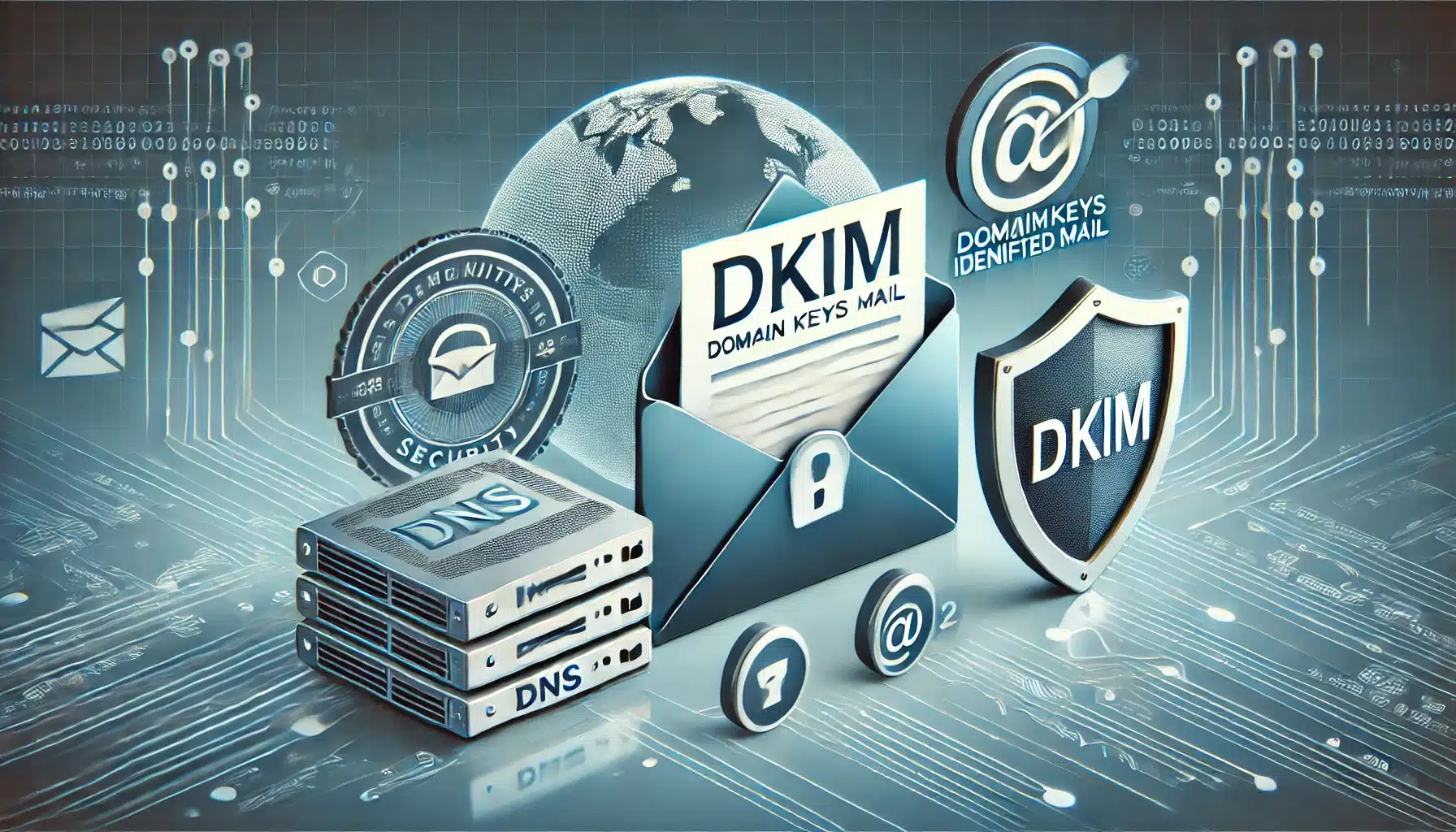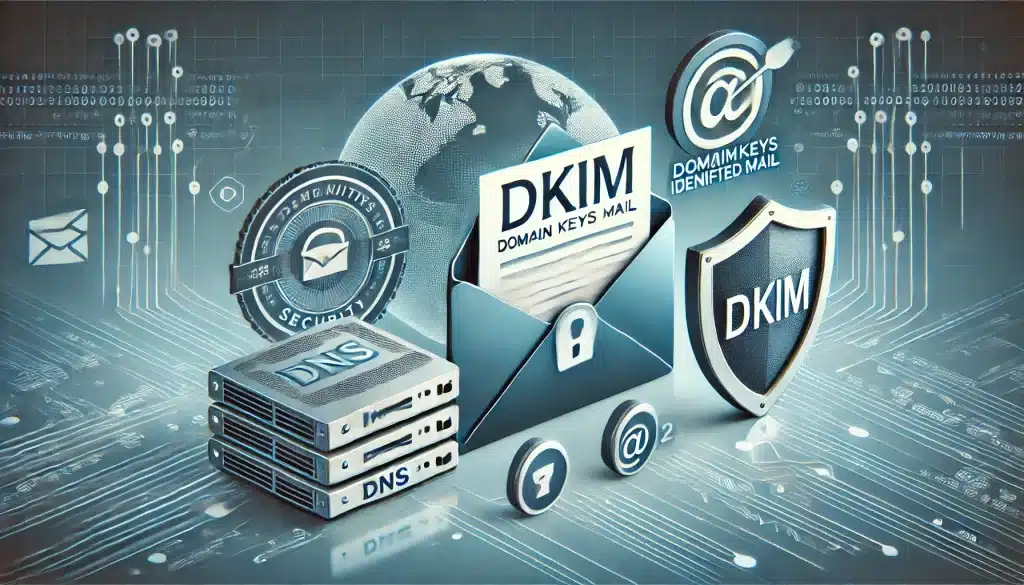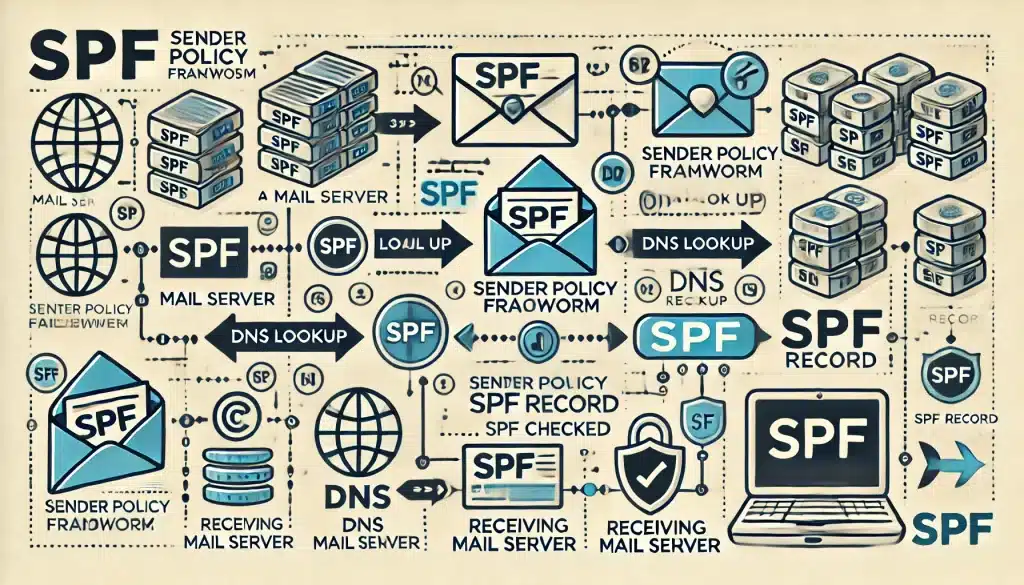DKIM: Securing Your Emails with Cryptographic Assurance
In the age of cyber threats, ensuring the security and integrity of email communications is more crucial than ever. DomainKeys Identified Mail (DKIM) is a key player in this endeavor, providing a layer of authentication that helps verify that an email is genuinely from the claimed sender and hasn’t been tampered with during transit.
What is DKIM?
DKIM is an email authentication protocol that allows the receiving server to verify that an email claiming to come from a specific domain is indeed authorized by that domain. It does this by adding a digital signature to the email header, which is linked to a cryptographic key stored in the domain’s DNS records.
When an email is sent from your domain, the outgoing server generates a unique digital signature using a private key and attaches it to the email header. This signature is then encrypted and matched with a public key that is published in the DNS records of the domain. When the email reaches its destination, the receiving server retrieves the public key, decrypts the signature, and checks it against the email content. If the signatures match, it confirms that the email is legitimate and hasn’t been altered.
The Importance of DKIM
- Prevents Email Forgery: DKIM plays a critical role in combating email spoofing by ensuring that only authorized senders can send emails on behalf of your domain.
- Ensures Email Integrity: By verifying that an email has not been altered in transit, DKIM protects the integrity of your message, ensuring recipients receive it as intended.
- Enhances Deliverability: Emails that pass DKIM checks are more likely to be trusted by receiving servers, reducing the chances of being marked as spam and improving overall deliverability.
How to Implement DKIM
Implementing DKIM involves a few key steps:
- Generate a DKIM Key Pair: Your email server or provider will generate a pair of cryptographic keys— a private key, which remains secure on your server, and a public key, which is published in your domain’s DNS records.
- Add the Public Key to DNS: Publish the DKIM public key as a TXT record in your DNS settings. This key will be used by receiving servers to verify the authenticity of your emails.
- Configure Your Email Server: Ensure your email server is set up to sign outgoing emails with the DKIM signature, ensuring that every email sent is authenticated.
Monitoring and Maintaining DKIM
Once DKIM is in place, it’s important to regularly monitor your email’s performance and the DKIM signatures. This can help you identify potential issues or unauthorized attempts to use your domain. Adjustments to your DNS records and server configurations may be necessary over time to ensure continued effectiveness.
Conclusion
DKIM is an essential tool for securing your email communications and protecting your domain from being exploited by cybercriminals. By implementing DKIM, you can safeguard your brand’s reputation, ensure the integrity of your messages, and improve the trustworthiness of your email communications. As part of a broader email security strategy, DKIM helps maintain the reliability and security of digital interactions in today’s connected world.




